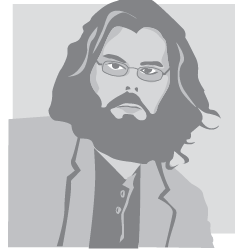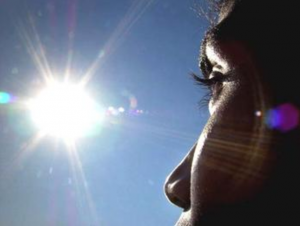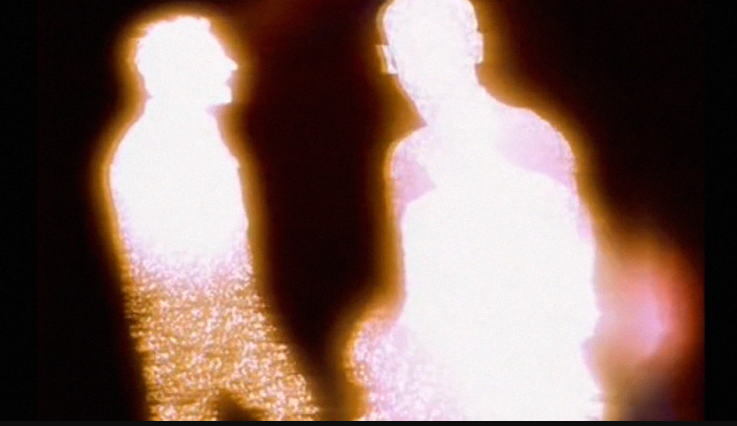You never thought you’d be alone
This far down the line
And I know what’s been on your mind
You’re afraid it’s all been wasted time
 aNewDomain — It is possible I will one day be an old man, with a few minutes to look back on the life I have lived. But this is an unlikely scenario. I eat tasty food and I hate to exercise, so a premature death due to a donut-related injury is a far more likely outcome.
aNewDomain — It is possible I will one day be an old man, with a few minutes to look back on the life I have lived. But this is an unlikely scenario. I eat tasty food and I hate to exercise, so a premature death due to a donut-related injury is a far more likely outcome.
Still, on that unlikely hypothetical day, I want to look back on a life of meaning.
Todd DuBose says that every event is meaningful; it’s just that we sometimes don’t like the meaning.
This is a semantic argument for some people; an equivocating argument. When we say ‘meaningful,’ in fact we mean ‘positive.’ ‘Affirming.’ But there are potentials for growth in every experience. Meaning that are not very desirable.
I remember failing a class in graduates school. Psychopharmacology. I couldn’t have cared any less about it. I didn’t study, barely did the reading, disliked the professor with a certain intensity. When my scores came back, I had to absorb the meaning of this event. In this case, the meaning was that I had been arrogant.
 That’s the thing. Events might give us any number of messages we aren’t prepared to hear. You are a coward. You didn’t study. You failed this real-world test of empathy. You acted against your values. When these events happen, we are faced with a choice: to seek meaning elsewhere or to face up to the meanings offered in the here-and-now.
That’s the thing. Events might give us any number of messages we aren’t prepared to hear. You are a coward. You didn’t study. You failed this real-world test of empathy. You acted against your values. When these events happen, we are faced with a choice: to seek meaning elsewhere or to face up to the meanings offered in the here-and-now.
Even the existential hero can’t stare at the sun forever. Us humans have to turn away from the glare sometimes. But looking away from the sun doesn’t make it go away; those lesson remain. They are still available, when we’re ready to turn back towards them.
At the end of life, maybe I’ll have this opportunity to review my experiences on this crazy planet. I hope to have learned a lot. I hope to have lived up to my aspirations, to have enacted my values – and to have had good values. The only way I can have learned anything, though, is through failures.
Here’s another problem: Most experiences aren’t good. Maybe 10 percent of our lives are ‘meaningful’ in the sense we want them to be – offering some concrete, affirmative meaning. Maybe twenty percent offer unpleasant emotional valences – stress, anxiety, fear, anger, worse.
And the rest just passes us by.
We are working mindlessly. Driving from place to place. Doing homework. Going through the motions.
But, look. There’s meaning to be found even in the apparently empty moments.
I take a certain amount of comfort from knowing that people have always had these human problems, have always struggled with the issues that existentialists ponder. Nothing new to see here. I like to read Zen Buddhist texts. There are a couple of stories that crop up in various forms.
One is of the Buddhist (or sometimes the Taoist!) meditating by the side of the road. A scamp comes by to tug on his beard. He asks what the master is doing. The master replies that he is trying to meditate. The scamp replies that trying to meditate is not meditating.
There is no difference between meditating and not meditating. The beginner has to try very hard to reach the very special state of mind in which meditation occurs. But for the master, meditation is a natural state of mind. It is not special. It requires no effort.
So the beginner chops wood and carries water, and the master chops wood and carries water. In the beginning, rivers are rivers and mountains are mountains; in the middle, rivers are no longer rivers and mountains are no longer mountains; and at the end, rivers are once again rivers, mountains once again mountains.
Is there beauty in your morning commute? Perhaps you have a visceral reaction to the idea, and I empathize. But if there is no inherent meaning in the universe, the meaning of your commute is something you brought to it.
You are responsible.
Maybe I’m greedy. I like to read the old texts but I don’t practice any kind of Buddhism or Taoism. I’m allowed to be greedy. And when I’m ready to die, I want to look back on all of my life. If I only focus on the good parts, and the good parts are just ten percent of my life, I might have only really lived nine years.
Given that infinity yawned before my existence and will open up again after I’m gone, I want all 90 years. Every one of them.
That means reflecting on the affirmative moments – the A’s, the births, the YESes – but also on the other times. The NOs, the dead time between events. The naps. Everything. I want it.
And the data seem to support this approach to living. Vaillant’s book, Aging Well, seems to suggest that people who are able to reflect on their experience and make active decisions based on the experiences tend to be happier at age 65 then their peers who do not. This effect is stronger than the effect of unpleasant events on lifetime happiness.
One day, you have to look back on your failures and realize that wasn’t wasted time at all. Those failures prepared you for this moment. For this one, right now.
Now.
For aNewDomain, I’m Jason Dias.
Cover image: BlackDogFilms.com, All Rights Reserved. Inside image: SplooshWorld.com, All Rights Reserved.













